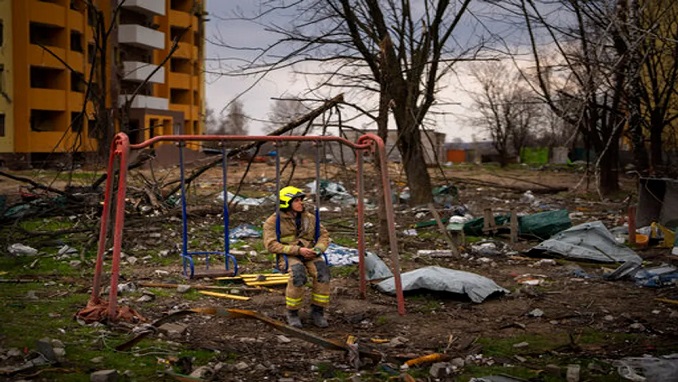An assessment made jointly by the World Bank, the European Commission, the United Nations, and Ukraine’s government showed on Wednesday, just over a year since Russia’s invasion of Ukraine, that the country will need $411 billion to cover its reconstruction and recovery needs.
As needs will continue to rise as long as the war continues, these estimates, per the report, should be considered as a minimum.
The latest evaluation has shown that Ukraine’s needs have grown from the $349 billion estimated in a September report and expects that in 2023, Kyiv would need $14 billion for critical and priority reconstruction and recovery investments.
According to the assessment, Ukraine’s government has already addressed in its 2023 budget that meeting these needs will call for $11 billion in the financing, but the new data shows the amount will go beyond that.
Noting that part of the reconstruction work has already been done, Ukraine’s Prime Minister Denys Shmygal stressed that Kyiv’s top five priorities for this year are energy infrastructure, housing, critical infrastructure, economy, and humanitarian demining.
According to him, however, the data on the loss of infrastructure, housing, and businesses in the occupied territories is not included in calculating the amount of damage and recovery needs.
The highest expected needs, as Shmygal pointed out, are in transport, housing, and energy.
The World Bank’s vice president for Europe and Central Asia, Anna Bjerde, said that Ukraine’s reconstruction will take several years, underscoring that the estimated needed fund of $411 billion is 2.6 times Ukraine’s estimated GDP for 2022.
That means that significant private investments will be needed to increase the available financing for reconstruction as an addition to the public investment.
On top of displacing millions of people, and pushing up the global food and energy prices, Russia’s invasion of Ukraine in February 2022 has tipped 7.1 million people into poverty, caused more than $135 billion in direct damage to buildings and infrastructure, and has undone 15 years of development progress and worsening inequalities, the assessment said.



